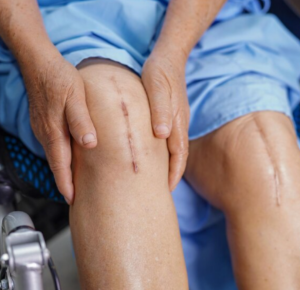
Living with a urological condition can be daunting. Fortunately, non-surgical options exist that can offer relief and improve quality of life. David B Samadi, MD, a well-known expert in this field, has shown that many conditions can be managed effectively without surgery. These approaches often involve lifestyle changes, medications, or other therapies. Let’s explore these non-invasive solutions and how they can help manage urological issues.
Understanding Urological Conditions
Urological conditions affect parts of the body involved in urine production and excretion. This includes the kidneys, bladder, and the urethra. Common issues such as urinary tract infections (UTIs), overactive bladder, and kidney stones can disrupt daily life. Understanding these conditions is the first step in managing them effectively without surgery.
Lifestyle Modifications
Simple lifestyle changes can have a significant impact on urological health. Here are three effective strategies:
- Hydration: Drinking enough water is crucial. It helps flush out toxins and reduces the risk of kidney stones and UTIs.
- Diet: A balanced diet rich in fruits, vegetables, and fiber supports urinary tract health. Reducing salt and caffeine intake can also help.
- Exercise: Regular physical activity helps maintain a healthy weight and reduces pressure on the bladder.
Medications and Therapies
For many urological conditions, medications can provide relief. For instance, antibiotics treat UTIs effectively. Other medications can help manage symptoms of an overactive bladder. Here is a brief comparison of common medications:
| Condition | Medication | Effect |
| Overactive Bladder | Antimuscarinics | Reduces urgency and frequency |
| Enlarged Prostate | Alpha-blockers | Improves urine flow |
| UTI | Antibiotics | Eliminates infection |
Pelvic Floor Exercises
Pelvic floor exercises strengthen the muscles that support the bladder. These exercises, also known as Kegel exercises, can be particularly beneficial for those with urinary incontinence or an overactive bladder. Regular practice of these exercises can improve bladder control and reduce symptoms.
Behavioral Therapies
Behavioral therapies focus on retraining the bladder. Techniques such as bladder training involve scheduling bathroom visits to increase the time between them. This can help improve bladder control and reduce urgency.
Alternative Therapies
Some people find relief through alternative therapies. Acupuncture and biofeedback are two options that have shown promise. Acupuncture may help reduce pain and improve bladder function. Biofeedback uses sensors to help patients become more aware of their body’s signals, which can aid in improving bladder control.
Consulting a Healthcare Professional
It’s crucial to consult a healthcare professional when dealing with urological conditions. A qualified healthcare provider can offer guidance on the best non-surgical options available. They can also monitor progress and adjust treatments as needed.
For more information on managing urological conditions, visit the National Institute of Diabetes and Digestive and Kidney Diseases website. They provide comprehensive resources on various urological conditions and their management.
Conclusion
Non-surgical approaches to urological conditions offer a range of options for those seeking relief. From lifestyle changes to medications and therapies, these methods can improve quality of life. By understanding these options and working with healthcare professionals, managing urological conditions becomes more straightforward and less invasive.



